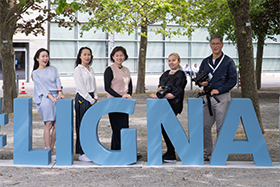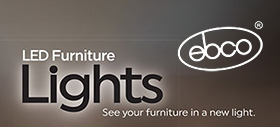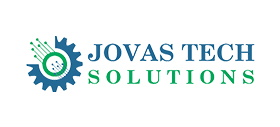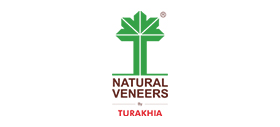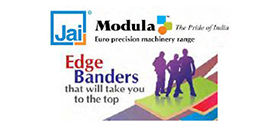Felder’s long-term view to achieving excellence

With a foundation rooted in precision engineering, customer trust and continuous innovation, the Felder Group builds not just machines, but also a strong, sustainable business system that thrives across global markets.
European woodworking brands like Felder Group have always stood apart for their belief in building not just machines, but also a strong, sustainable business system that thrives across global markets.
With a foundation rooted in precision engineering, customer trust and continuous innovation, Felder has successfully created a worldwide network that ensures the same quality and reliability are delivered to workshops, be it in Europe, Asia or the Americas.
This global mindset reflects the company’s philosophy that excellence in woodworking is not limited by geography, but empowered by a unified system of innovation, service, and long-term partnerships.
As pioneers in woodworking innovation and precision engineering, the Felder Group has witnessed first-hand how technology, automation, and thoughtful investment shape the future of craftsmanship
Today, India’s woodworking sector stands at a pivotal juncture, facing rising demand, quality-conscious consumers and labour supply uncertainties. Felder Group believes now is the time for Indian manufacturers to move from cost-focused short-term decisions to value-driven long-term strategies.
Growth trajectory
India’s woodworking and furniture sector is on a strong upward curve. In 2023, the Indian furniture market was valued at around US$ 15.79 billion, with projections estimating growth to approximately US$ 26.85 billion by 2028, reflecting a CAGR of roughly 11.2%.
Concurrently, the wood processing equipment market in India was valued at about US$ 7.70 billion in 2024 and is expected to reach US$ 11.40 billion by 2030, growing at a CAGR of ~6.6 %, driven by rising demand from construction, infrastructure, furniture and interior design segments.
The market for wood based panels is also expanding rapidly: in 2024 the revenue was about US$ 1,570 million, with forecasts putting that at nearly US$ 3,670.9 million by 2030, a CAGR of ~15.9 %.
The key drivers of this growth include rising urbanisation, increasing disposable incomes, growing consumer demand for quality and design, pol-icies encouraging ‘Make in India’, and export agreements that open international markets.
Additionally, changing lifestyles are pushing demand for modular, multi-functional furniture and interior fitments, which in turn require more precision, better machinery and higher automation.
All this means that there is both strong demand now and large latent demand that will force the industry either to upgrade or lose competitive ground.
Long term value
Europe has a long tradition of machine tool and woodworking machinery excellence. Leading firms like Felder Group (Austria) and others invest heavily in R&D, precision engineering, materials, software integration and automation.
These qualities give European manufacturers several meaningful advantages: precision, durability and build quality. European machines tend to use high grade components, achieve tighter tolerances, better structural rigidity, more effective dust extraction and safety systems, and robust servo/ motion systems. The quality of assembly, calibration and finish tends to be higher.
For example, Felder offers more than 180 models, from standard woodworking machines to high end 5 axes CNC machining centres, as well as robotic and material handling systems.
Felder’s automation material handling offerings (V motion systems, robotic or one man loading/unloading, return systems for edge banding, etc.) are designed to increase productivity, reduce labour dependency, improve material flow and reduce waste. India is a country with both advantages and challenges in terms of labour.
• Shortage of skilled labour in many regions; migration of labour; rising wage demands; labour absenteeism or reliability issues; changing preferences (new generation less interested in heavy manual shopfloor labour); regulatory uncertainty in some states; costs of training and retaining workers.
• Labour supply costs (wages, housing, transport), availability of skilled operators, regulatory risks (labour laws, contract labour, etc.), health/ safety/ national events (pandemics, lockdowns) all contribute to volatility of labour. European automation helps reduce exposure to these risks.
• Felder is investing in automation and robotics, such as its “robot motion” and smart material handling systems; modular robotics; one man operations with material handling; software/IoT integration to reduce manual intervention.
• Automation ensures repeatability, reducing reliance on manual skill which can vary. Especially for Indian firms concerned about labour supply and costs, investing in higher quality European machines with higher automation can hedge against those risks, especially as labour gets more expensive or unstable.
• Retrofittable automation means you don’t need to hire many extra skilled labour immediately; you can scale labour involvement gradually.
Service, spares, training
European brands tend to have more mature systems for service, spare parts and technical support. This reduces downtime, ensures machines maintain precision over many years, and ensures total cost of ownership is lower.
Felder has many showrooms, experience centres worldwide (including India) that help customers see, train and maintain machines. Many European ma-chines are modular or can be upgraded (e.g. partial automation, retrofits) so businesses can grow investments in step with capacity/ complexity requirements.
Felder’s robotics and automation modular design is a case in point. European machines are built often to meet strict EU CE/ISO norms; efficient energy consumption; dust, emissions, operator safety standards.
Exported machines that comply with these norms may also help in Indian operations which increasingly have to meet global buyer (export) standards or local environmental/ labour laws.
Though the upfront cost is higher, for many Indian woodworking businesses, the investment in premium European machinery pays off in significant ways, even in small workshops.
There is reduced operating cost over time; less frequent breakdowns, lower rework; fewer defects and more efficient energy usage; lower scrap material – all of which means that although capital cost is high, operating cost and waste are lower.
High-end demands
Quality consistency and meeting high end demands for export of furniture, cabinets, modular kitchens, interior works destined for premium markets is possible. High-paying customers also demand consistency, finish and precision. European machines help deliver that.
Scalability & future readiness: With changing market demands (e.g. custom furniture, varied designs, smaller batches) automation, CNC, modular machines allow flexibility and scalability. Felder technology also helps prepare for stricter environmental and safety regulations worldwide.
Premium machines often retain value better and last longer. When scaling or changing inventory, a well maintained European machine can still fetch higher resale or be repurposed.
Using better machines forces upskilling, which has long term benefits for the workforce. Smaller Indian workshops are already partnering with Felder’s experience centre (in Mumbai) for training.
Comments

- European symposium highlights formaldehyde emission limits
- Egger adopts holistic approach to waste management
- Taiwan’s Woodworking Machinery Industry Captivates Global Media on Opening Day of LIGNA 2025
- Coming of age of sustainability
- Intelligent packing line, sander from Woodtech
- Ornare introduces 5 new leather decors
- Richfill Edge Coat offers safer plywood finishing
- Jai’s Optimus range stays ahead of the curve
- Merino’s Acrolam sets new benchmarks in elegance
- Pytha 3D-CAD: where precision meets production
- Raucarp edge bands: simple, affordable
- Greenlam scores a 1st: High Quality Product Award
- Häfele turns space solutions provider
- Hettich bets on intelligent motion for evolving interiors
- Praveedh taking desi innovation to the global stage
- Turakhia shows off its Natural Veneers range
- Egger continues to ‘inspire, create, grow’
- Blum turns heads with new drawer, hinge systems
- FSC benchmarking responsible forestry
- At 100, Festool powers new solutions
- Door manufacturing on cusp of transformation
- AI-powered crib sings a universal lullaby
- In Full Bloom: Top brass at Blum takes a shot at burgeoning India market
- Elegant mathematics is bending the future of design
- Wood fibres weave new textile yarn
- Rolls-Royce icon: ‘most intricate woodwork ever’
- Felder’s long-term view to achieving excellence
- Tech in the future of furniture manufacturing
- Exports from India on horizon: Juergen Koeppel, CEO, Leitz Tooling
- Pfleiderer adds value with digital ‘structure finder’
- Australian architects design for KEEPsakes
- Jump shot! Crafting the ultimate pool table
- Apple adopts CLT to cut building emissions
- Sustainable design at Hotel Hábitat 2025
- Vecoplan tailors waste wood processing at Schaffer Holz
- Dealer engagement goes digital
- How to refinish wood decks like a pro
- IWMMTA makes strong beginning in the East
- Feria Hábitat weathers unusual Spanish storm
- Interzum Guangzhou 2026: materials defining the future
- Forum Italy: Beyond Furniture, Towards the Future
- CIFF Shanghai: hub of design, innovation
- Interzum Jakarta debuts with strong connect
- DAIC to showcase Kerala’s prowess this December
- Events Calendar: Industry fairs to visit



























